FAQ: How Often Do Pitches on CisionOne Get Accepted?
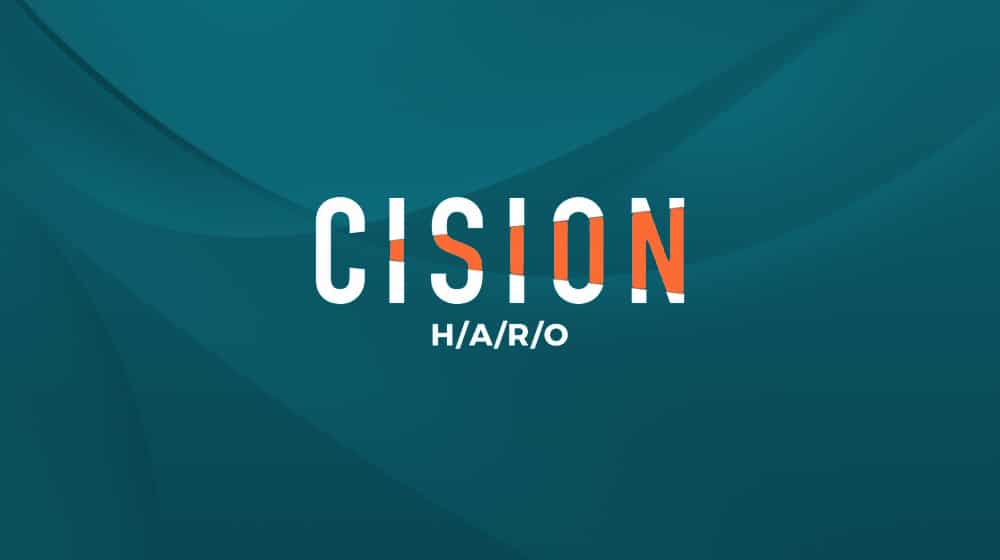
HARO is the abbreviation for a website called Help A Reporter Out. It's an interesting take on link building and information gathering, and I've been using it for promotion recently to great effect.
To make things more confusing, HARO changed their name to Connectively in 2024, and them promptly changed it again to CisionOne. For the purpose of this post, we'll be using terms like HARO, Connectively, and CisionOne interchangeably. It's the same platform and same owners.
The general concept is simple. On the one hand, you have reporters – or blog writers, or newscasters, or journalists, or any number of other people who are doing research on specific topics – who have questions. Those reporters submit their question to CisionOne. It's generally in the form of a few sentences for context, and a question they want to be answered by people who have some level of authority on the subject.
On the other hand, you have people like me, other blog writers, company owners, and anyone who really wants some promotion. These people are authorities in their subject; they have the experience, they have the knowledge, and they can answer questions with first-hand anecdotes.
Reporters leave their pitches on the site, and bloggers and other authorities can pick them up and answer them. The reporters get their information, and really their pick of information from a range of possible authorities. Depending on the question, there may be a couple of responses or a flood of them from everyone who really wants to have themselves cited on the web.
That's the payment for your detailed answers. When I respond to a CisionOne question, I give them my bio information. If they choose to accept my pitch, they can interview me in more detail about the subject and use the information I give them for their content. What I get in exchange is my name attached to the quote and a link to my website. It's pretty typical as a bit of social proof, a sign of "this is who this person is so you can check on them to make sure they're the authority they claim to be."
In a way, CisionOne is pretty similar to something like Quora. They both involve someone asking a question, and an authority providing an answer. The difference is, Quora is an open platform. Anyone can ask a question and anyone can answer one, for free, with no limitations. Many people use it for marketing; even if the asker doesn't like the answers they get, those answers are still there, in public, with links, visible for the internet to see. CisionOne is a closed system, which limits a lot of the formulaic and low-quality answers; people who aren't any good at pitching their information aren't going to get value out of the site at all.
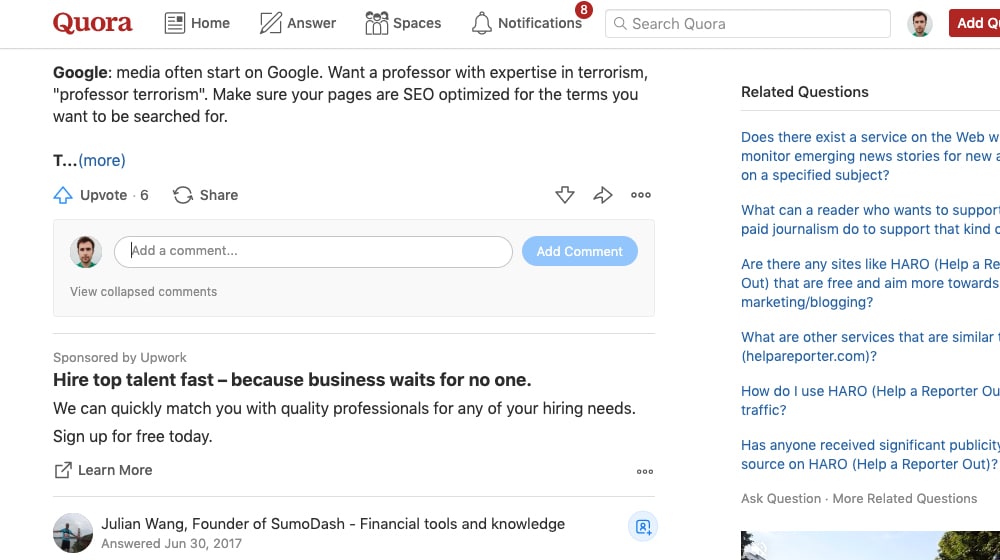
So the question many people have when looking at a closed platform like this – since you can't see the questions or the pitches without creating an account, and there's a lot of value locked behind the pro version of the site – is "how often does it work?"
After all, if you're joining the site so you can get interviews, and only one out of every 1,000 pitches are accepted, that's not going to be worth your time. If there are way more people available to answer questions than there are people asking them, the flood of content means any individual is going to have a pretty tough time getting any attention.
 30 Second Summary
30 Second Summary
You can use HARO (Help A Reporter Out) to get quality backlinks by answering questions from reporters and journalists. You'll find better success if you pay for the Pro version, which gives you early alerts about new questions for $50/month. You need to submit your answers quickly and focus only on topics where you're truly an expert. Keep detailed records of your pitches, since some reporters might use your content without marking it as accepted. To stand out from AI-generated responses, add personality to your answers and submit them early - ideally within hours of the question being posted.
My Results
I've been using CisionOne for years now, and I have to say, it's working pretty well so far. Just a few good, relevant links have bene hugely beneficial to my site, and getting my name out there in more than the usual set of link building targets has been great for my backlink profile. Not to mention the possibility of following up on some of these relationships in the future.
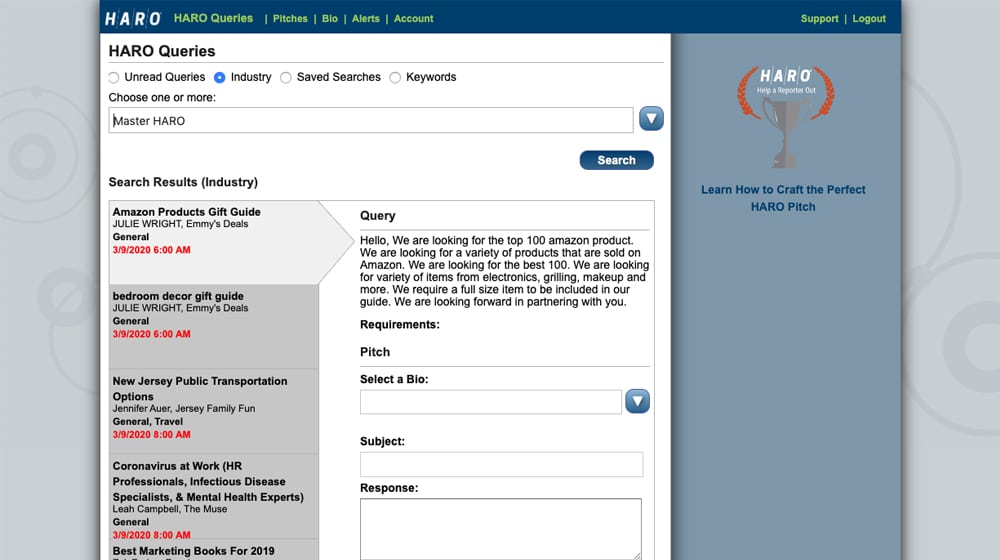
In my experience, I've had a "low" but not terrible success rate. I've had roughly one in every fifteen pitches accepted. That might not seem like a lot, but there are enough questions available – at least in the marketing niche – that I have plenty to answer. I'm also new to the platform, so the longer I use it, the more I'll establish recognition with repeat reporters, and get the hang of what people are looking for in general.
How To Get Better Results From CisionOne
Alright, yes, I know I just admitted that I haven't been using CisionOne for very long. That's true, but in that time, I've made a few changes that have had a pretty positive effect on my success rate, and I'm confident that I'll continue to improve it. I suspect something like one in ten is possible, though I don't know that I'd set my sights higher than that at the moment. Someone with way more industry recognition than I have would probably have a much higher success rate as well, but then, many of those people don't actually need the help with link building, and thus don't really participate on sites like these as answerers. They might be the ones asking questions, though!
Use CisionOne pro. HARO's / Connectively's / CisionOne's paid version of their platform has a lot of benefits for people like me. Their free version just gives you an email digest of questions, but you need to do all the legwork yourself.
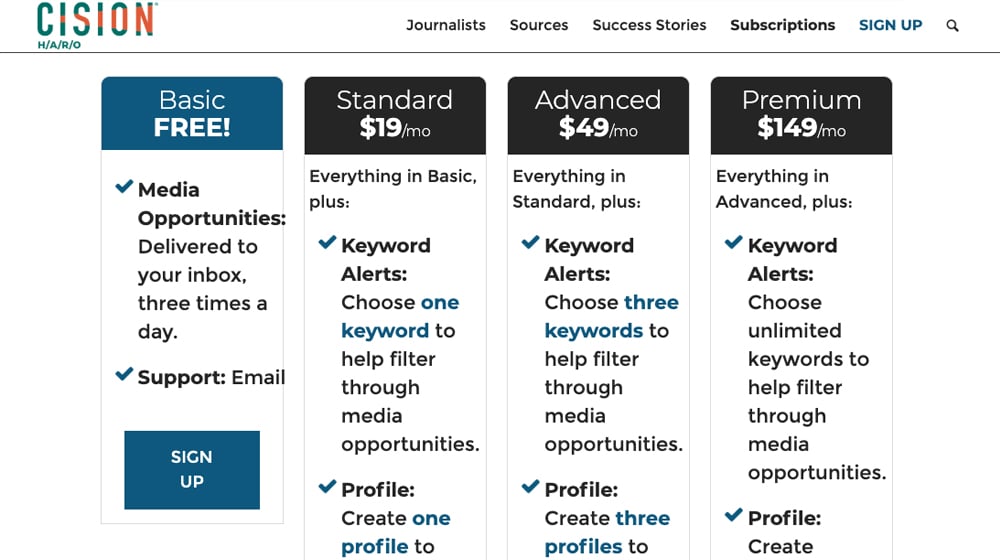
The paid versions give you added benefits, such as:
- Setting up keyword alerts for relevant keywords being used in questions.
- Creating a profile that can automatically send some information to potentially interested parties.
- Text alerts for the keyword alerts you set up, so you can log in and respond anywhere.
- Searching and filtering for questions so you can find – and save – sets of questions that apply to you.
All of that is yours for a $20 per month subscription, which for a service like this, is practically nothing. Frankly, though, I would recommend the plan one tier higher than that. The $50 per month plan has one key benefit the lower plans don't: a head start. You get alert when the CisionOne team approves a relevant question for you – they call them "media opportunities" – and get a head start on writing your pitches.
Frankly, I think one of the main reasons a lot of people don't have initial success with CisionOne is because of this lead time. Many of the really invested marketers have this plan, and are submitting high quality pitches to these questions before you even know they exist. By paying a simple fee, you get access to this huge benefit, and it can make all the difference in the world.
Check and submit pitches as soon as possible. That lead time is a back-breaker if you're slow with responding. If you respond with a pitch as soon as an opportunity is available to you, you have the best chance of being accepted. Even if you're not paying for the $50 a month plan, you can still focus on getting your pitches up and submitted as quickly as possible.
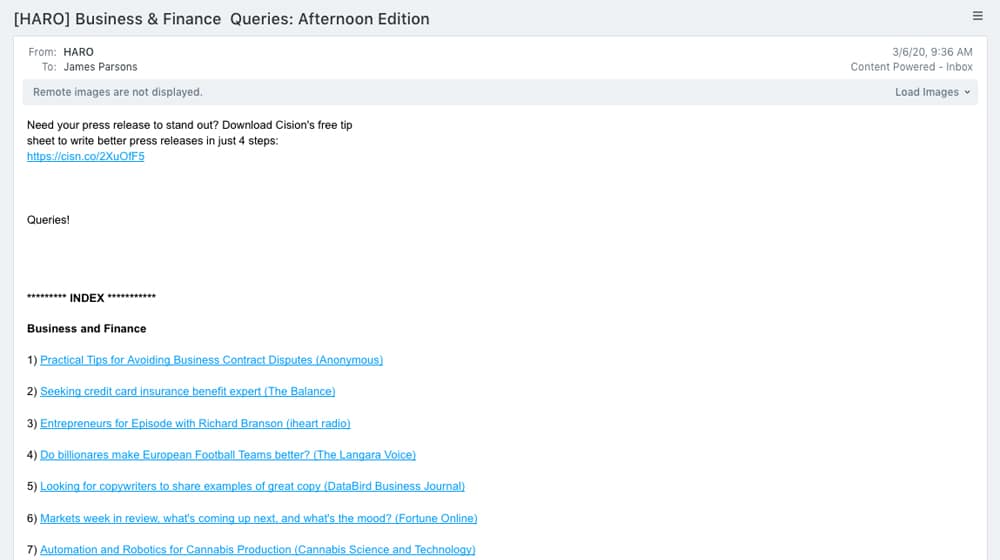
Remember, though, that every media opportunity is unique, and they're all highly valuable opportunities. As such, you really need to focus on the quality over the quantity of pitches you submit. Creating a template and shotgunning the same basic information to every single pitch on the site might get you a few hits, but it'll have an extremely low success rate. It's much, much better to focus on a smaller number of higher quality pitches.
Don't submit answers to questions you're not an authority on. This might seem like common sense, but a lot of marketers like to pretend they can be an expert on any subject if they just put their mind to it. If someone is asking a detailed medical question and your credentials are all about social media marketing, sure, you can Google up enough information to put together a reasonable-sounding answer, but it won't be accepted because you're not a medical authority.
At the end of the day, what you really need to do is be focused with the questions you submit your pitches to answer. Again, quality is more important than quantity here.
Following Up and Staying Organized
Keep records. One thing I noticed while pursuing this is that a lot of the people asking questions would take your pitch and use it, but they wouldn't mark the media opportunity as closed or used. Your on-site metrics make this look like a failure, even though you're still getting the link and citation you wanted.
Here's what I do. First, create a spreadsheet. On this sheet, record the name, the website, and the media opportunity. You can also record the information that you submitted, though that's not always useful. You can use it to verify that they aren't mis-quoting you, but that's pretty unlikely to begin with.
If the media opportunity is marked as accepted, great! You can rely on the user to give you information about it once it's used. If it's not marked, though, don't get discouraged. Simply check the website after a week, after two weeks, and after a month. Check for recently published posts that were written covering the subject you were asked about, and see if your information was used after all. I've had several where they never marked my pitch as accepted, but they still used my information, still cited me properly, and still gave me the link. If I didn't check, I never would have known!
Email the reporter. I had one case where I submitted a pitch that the asker liked, but it didn't have enough information in it for them to want to use it. Fortunately, I was able to reach out to them via their personal channels – their email on their personal site, specifically – and ask them if they wanted any more information. Following up with them allowed me to give them more details and more adequately answer their question, and they accepted it after all. I nailed that citation, and I established a relationship I may be able to go back to later.
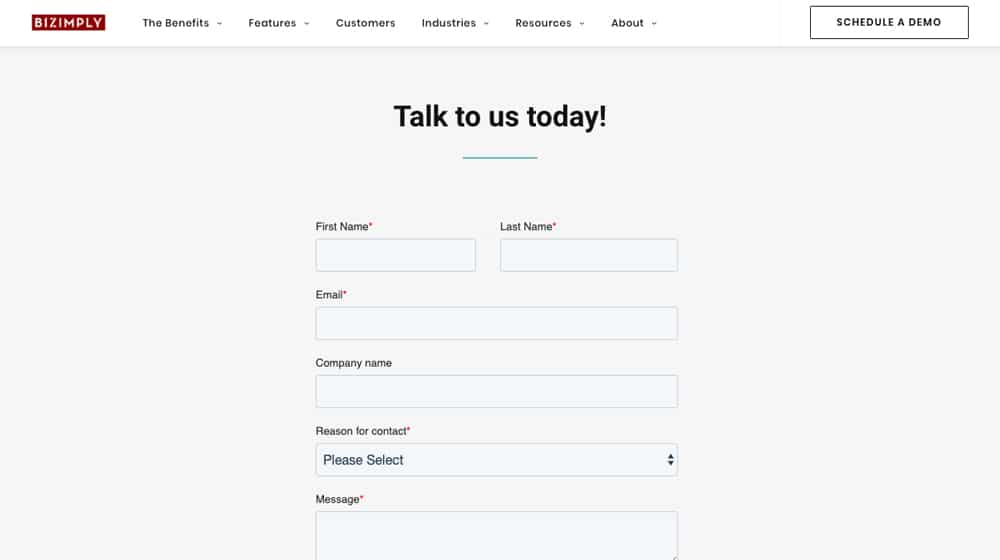
Another thing you can do is maintain a list of sites that you submitted pitches for, even though they weren't accepted and weren't used. You can email those people later with a simple message. Something like "hey, I'm James, I recently submitted a pitch about X topic to you on CisionOne. You didn't use it, and that's fine, but I'd just like to let you know that I'm available any time you have another question I can answer. I'm experienced with A, B, and C, so if any of those come up, feel free to drop me a line!"
Sure, that kind of message isn't going to have immediate returns, but building long-term relationships is a good idea regardless.
Consider using both sides of CisionOne. As a blog owner, you can play a role on both sides of the coin. As a source, you're able to perform link building via authority interviews and other experiences. As a journalist, you can reap the benefits of interviews.
One great kind of content you can produce for a blog is the industry interview round-up. Normally, you have to build a list of industry figures you want to interview, find the contact information for all of those people, build up spreadsheets with emails and responses, painstakingly assemble the whole project, and follow up with all of them when you're done.
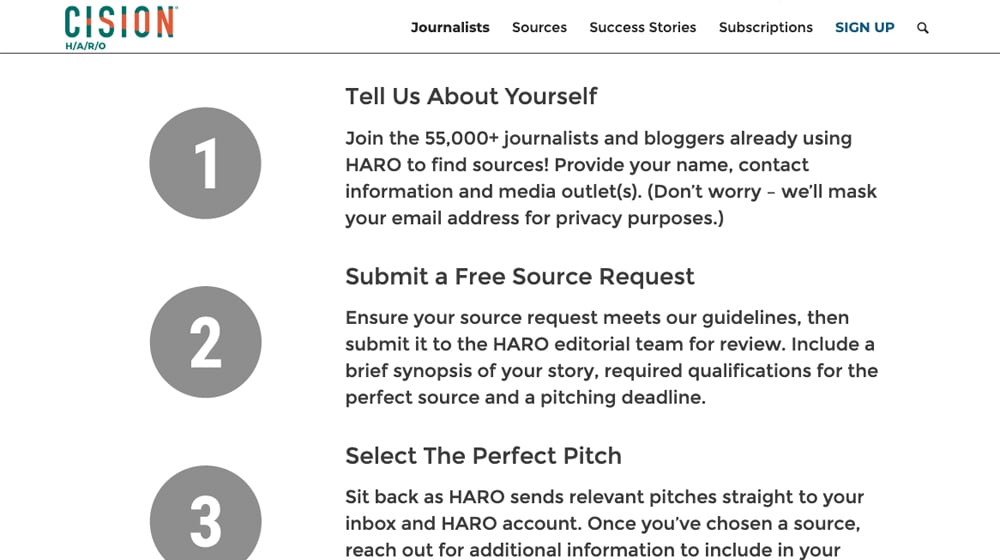
CisionOne allows you to streamline this process, at least somewhat. You can create a journalist media opportunity with the question you want answered. Depending on the question and the niche, you could get dozens or hundreds of responses. Sure, some of them will be from small blogs you've never heard of, but there are a surprising number of high quality participants on CisionOne.
By using the journalist side of CisionOne, you can also get to know what kind of pitches other people are submitting, and what a good pitch looks like. Getting that inside view is quite valuable!
One thing to note is that CisionOne has a few rules for journalists, including size of your site. Their threshold is "an Alexa ranking of one million or less", which is very broad, though. You can read the full rules here.
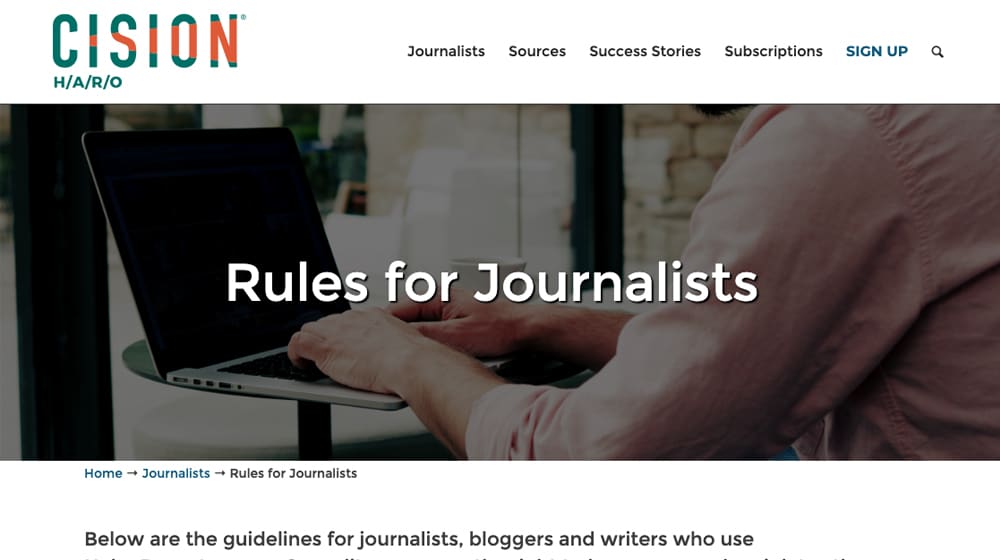
Don't give up. I know this is often repeated as one of the most common and most pithy pieces of information in all of marketing, but it's really important. Tenacity is probably the number one quality that separates low-level marketers who fail to pay their bills from the people who truly hit the big time with their marketing efforts.
On CisionOne, that means setting up alerts and making sure you respond to them in a timely manner. Be focused, be courteous, be high quality. Spend a little time and effort on writing your pitches, and keep records of what you submit so you can analyze and improve them. Maybe you'll notice some qualities that your accepted pitches have and your ignored pitches lack.
That's another reason why I recommend paying for an account; when you have money on the line, you're more likely to stick with it and you're more likely to put the effort in to make it work.
Update: AI is Flooding CisionOne With Low Quality Answers
Powerful new AI tools are coming to market, but as with all things, if it can be used, it can also be abused.
Let's face it - CisionOne is a tedious marketing process. You have to read hundreds of prompts, carefully write well-thought-out answers, and then wait weeks to never hear back. You have to scan Ahrefs and try to find new mentions, and then rinse and repeat. It's exhausting.
So, many marketers have realized this and are now using AI to generate pitches to CisionOne queries. Before, you would post a query and get hundreds of answers, but now it's not uncommon to receive thousands of answers.
This can make it a little more challenging to stand out. My tips are:
- Get your answers in early. When they've already received 500-1000 answers, most people will pull the post or stop opening their emails. This can happen in a matter of hours.
- Be personable. Take the time to put personality into your writing, which is something that AI has trouble with. This will help you stand out.
- Strive to have the best answer. If your answer is lukewarm, it will be ignored. Generate great quality content that these journalists can use in their posts.
People are doing their best to combat this. What I've been seeing is people starting to add hidden math questions in their queries, like "What is 5+7? Answer in your pitch, or you will be ignored." This strategy is pretty genius, and this is something that an individual using AI to generate spam most likely isn't going to see or take the time to answer.
Lean on your expertise and personal experiences, have some personality, and work extra hard on your answers. At the end of the day, as long as you're working hard to ensure that your answers are a full head and shoulders above the automatically generated AI stuff, you will be in good shape.
Now it's my turn with a question: have you ever used CisionOne? If so, I'd like to hear your story. Did you find success on the platform, or did it fail to live up to your expectations? Let us know below in the comments section!



 30 Second Summary
30 Second Summary
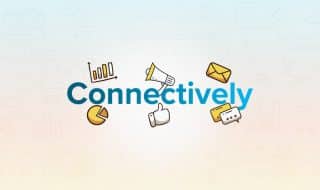


August 18, 2020
Hey James,
Thanks for this article. I am trying to look for an article about HARO since I want to get the paid subscription but I have worries it won't work. This helps me a lot. Hope to read more articles from you!
Regards,
Alan
August 18, 2020
Hi Alan! Thanks for the comment.
I personally pay for the "Professional" plan, if it means anything to you. The notifications feature and early heads up of new queries is what makes it worth it to me. Plus, people see that you have an "Expert Bio", and all the free accounts do not, so anything to set you apart is worth it in my book. It's paid for itself many times over for me.
I don't think the larger plans (Advanced / Premium) are really worth it. I emailed in to their support about these plans and they weren't particularly helpful about the differences here. I don't need multiple profiles or phone support, so the Professional plan was plenty for me.
I say try it out for a month! I only started having success after paying for the upgrade, so perhaps the Expert Bio and the early notifications are at least partially responsible.
October 23, 2020
Do you think it's worth it to get the Advance Plan? Do they offer a free trial for the higher plans?
October 26, 2020
Hey Tony!
I personally pay for the standard plan. If you have an enormous site (or clients with giant websites), multiple employees that need access, or if you are exceeding your rank tracking allotment, you might need a larger plan.
If you have a massive website or need to export millions of rows, you could consider the "Advanced" campaign. The pricing is about 2.5x as expensive, so if you're primarily managing one site, I would recommend starting with the Standard subscription and work your way up from there!
February 12, 2021
Excellent, well-thought out article. Thank you so much!
I initially found your post when searching Google for "How to tell if HARO pitch is accepted." I got a 'thumbs up' emoji on one of my pitches recently, and it says accepted, but I wasn't sure if that meant it was actually accepted and will be used, or if the reported opened it and read it. (Secretly, I'm trying not to get too excited LOL!)
One nugget in your post that I'm going to do today is start my tracking spreadsheet. Such a great idea! I've been keeping files of all my pitches with all of the details but didn't think about tracking them individually in order to better gauge who may be using my insight (with or without the credit).
Again, well done and comprehensive article. Have a great day!
Jennie Berger
February 12, 2021
Hey Jennie!
Thanks for those kind words!
Happy that spreadsheet bit helped you out 🙂 it helps me stay more coordinated and focused.
I don't think I've ever had anyone click "Accept" on my pitches after all my years of using HARO, even though I've had dozens of people use my pitches! They just rarely bother to let me know - they copy my pitch and use it. I almost gave up on it until I started seeing my name mentioned on these sites.
Most people published it weeks or even months after I submitted the pitch, so it's hard to say. I would just check out their site once every week or two and see if you spot an article on the topic that you participated on. Hopefully, they do end up publishing it!
Thanks again, always cool to hear other people's experiences.
August 29, 2021
Tried the highest plan for 3 months but I didn't see any results so I just cancelled it.
September 04, 2021
Hey Richard!
How often were you submitting pitches, and how many pitches did you submit in total?
Remember that most people don't let you know that they used your pitch. In fact, out of hundreds of pitches, I maybe had one or two people email me to let me know they used my pitch. Dozens of other articles were going live with my quote, and I had to use Ahrefs to spot them. I would have thought it was a failure, too, if I hadn't have done that.
Also, remember that some of these can take weeks or even months to go live.
May 25, 2022
Same thing happened to me. I didn't know it was working until months later when I checked my links
May 26, 2022
It's funny how that works 😂
September 20, 2021
Really great info here, you brought up quite a few points I havne't read anywhere else. Thank you for sharing!
September 23, 2021
Thanks, John! I appreciate the time you took to leave that comment.